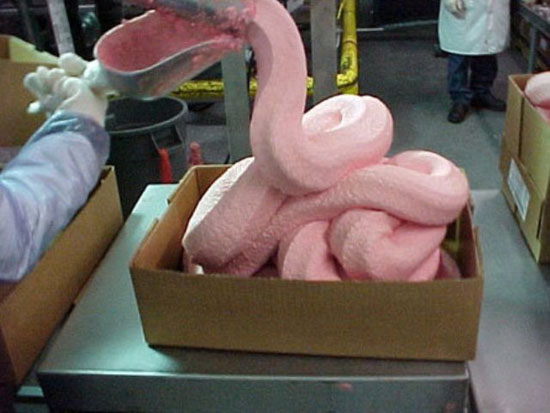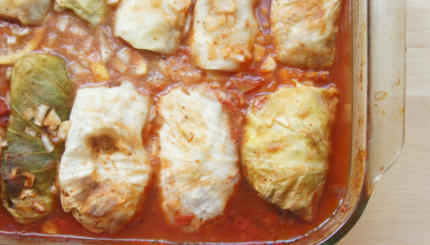Like so many cooks around the country, you have probably recently wondered if there is pink slime, the ammonia-treated-meat-scrap-mixture found in most ground beef, in kosher meat. Well I have good news and I have bad news. The good news: according to the Orthodox Union, there is no pink slime in any product they have certified. The bad news? There’s almost certainly other stuff – worse stuff – in your kosher burger.
In a food animal’s life, the rules of Kashrut don’t kick in until slaughtering time. That means that until reaching the shohet’s knife, there is no difference between the cow in a Glatt Kosher OU burger and the cow in a McDonald’s Big Mac. (In fact, sometimes they are the exact same cow, as Rabbi Mandel at the OU told me – kosher meat producers routinely sell hindquarters to non-kosher processors.) A kosher label, therefore, doesn’t tell you anything about what happened to the cow while it was alive, including whether it was fed antibiotics and/or pumped with growth hormones. But even though this information is not in your kosher seal, it has strong implications for what’s in your food.
By adding antibiotics to the feed of every single animal on a factory farm, companies are able to inoculate animals living in extreme crowding and filth from infectious diseases that would otherwise wipe out entire herds. (Picture the Black Plague in Europe, only it’s e. coli on a feedlot.) Further, through the use of growth hormones, cows can reach unnaturally large sizes in very short periods of time. When you eat a burger – even a kosher one – you are ingesting those hormones and antibiotics (not to mention more highly evolved versions of the bacteria the antibiotics were meant to kill).

Unlike pink slime, which has no known negative health effects, the introduction of massive amounts of antibiotics and hormones into our food supply is extremely dangerous. Eighty percent of the antibiotics used in the U.S. are given to healthy farm animals in doses high enough to protect the animals from most infectious diseases but low enough to allow for the survival and then breeding of “superbugs.” According to the World Health Organization, we are nearing a “post-antibiotic era” in which these highly evolved microorganisms are completely resistant to our antibiotics. (Though with any luck, a recent court ruling ordering the FDA to investigate the effects of these practices may end them.) The use of hormones is no safer. After finding evidence linking hormone use to cancer, Europe banned the practice in 1989, but it is still an industry norm in the U.S. These problems are not just limited to beef: recent studies found that arsenic, anti-depressants, and painkillers are being fed to chickens.
But don’t worry. I am not about to tell you to become a vegetarian. Hazon, a Jewish organization dedicated to sustainability, has put together a great list of kosher meat producers that raise animals on natural diets without the use of antibiotics or hormones. Try it once and you’ll be hooked – not only is the meat healthier for you and more ethically and naturally-raised, it tastes better too.
The Nosher celebrates the traditions and recipes that have brought Jews together for centuries. Donate today to keep The Nosher's stories and recipes accessible to all.



